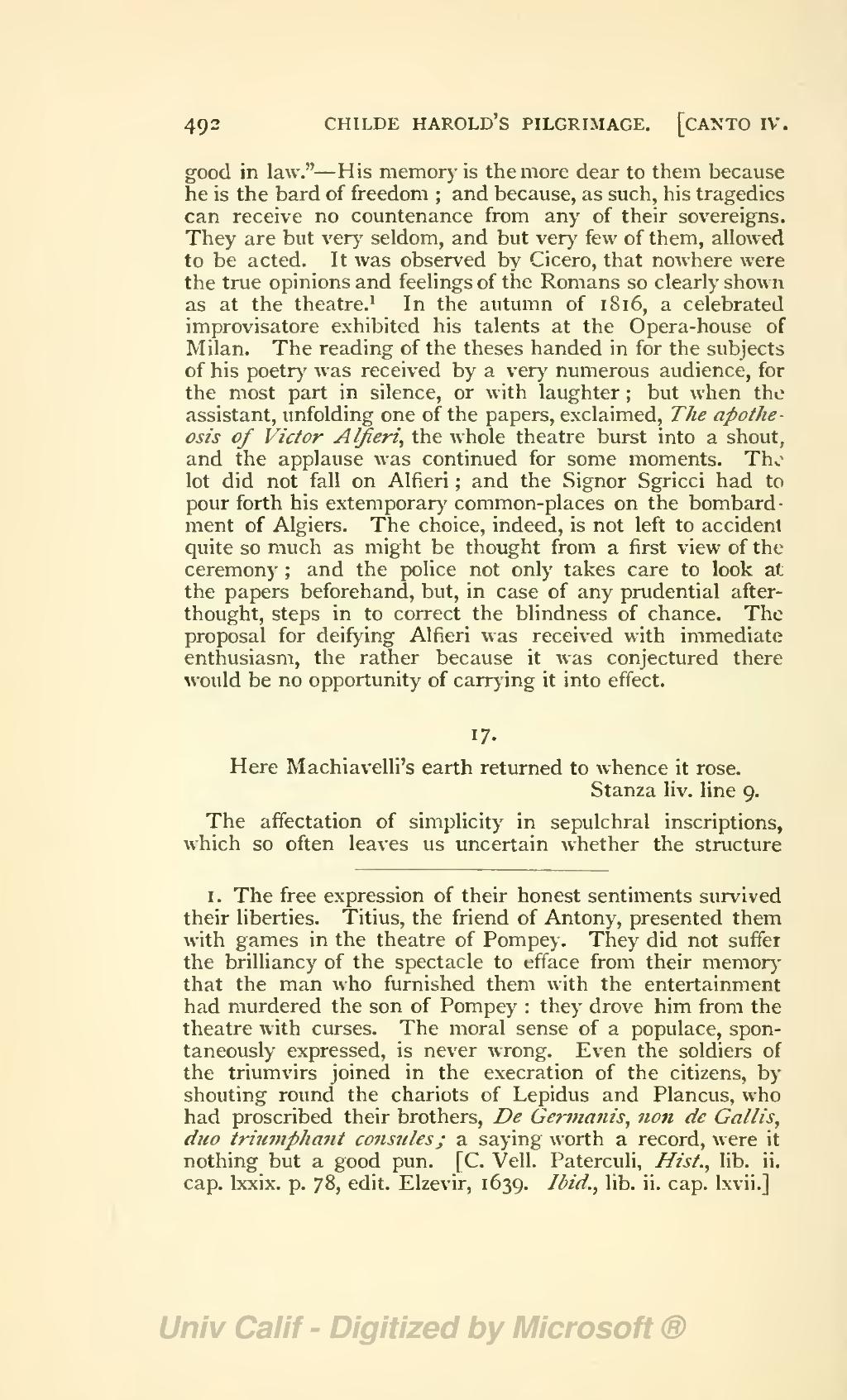good in law."—His memory is the more dear to them because he is the bard of freedom; and because, as such, his tragedies can receive no countenance from any of their sovereigns. They are but very seldom, and but very few of them, allowed to be acted. It was observed by Cicero, that nowhere were the true opinions and feelings of the Romans so clearly shown as at the theatre.[1] In the autumn of 1816, a celebrated improvisatore exhibited his talents at the Opera-house of Milan. The reading of the theses handed in for the subjects of his poetry was received by a very numerous audience, for the most part in silence, or with laughter; but when the assistant, unfolding one of the papers, exclaimed, The apotheosis of Victor Alfieri, the whole theatre burst into a shout, and the applause was continued for some moments. The lot did not fall on Alfieri; and the Signor Sgricci had to pour forth his extemporary common-places on the bombardment of Algiers. The choice, indeed, is not left to accident quite so much as might be thought from a first view of the ceremony; and the police not only takes care to look at the papers beforehand, but, in case of any prudential afterthought, steps in to correct the blindness of chance. The proposal for deifying Alfieri was received with immediate enthusiasm, the rather because it was conjectured there would be no opportunity of carrying it into effect.
17.
Here Machiavelli's earth returned to whence it rose.
Stanza liv. line 9.
The affectation of simplicity in sepulchral inscriptions, which so often leaves us uncertain whether the structure
- ↑ The free expression of their honest sentiments survived their liberties. Titius, the friend of Antony, presented them with games in the theatre of Pompey. They did not suffer the brilliancy of the spectacle to efface from their memory that the man who furnished them with the entertainment had murdered the son of Pompey: they drove him from the theatre with curses. The moral sense of a populace, spontaneously expressed, is never wrong. Even the soldiers of the triumvirs joined in the execration of the citizens, by shouting round the chariots of Lepidus and Plancus, who had proscribed their brothers, De Germanis, non de Gallis, duo triumphant consules; a saying worth a record, were it nothing but a good pun. [C. Vell. Paterculi, Hist., lib. ii. cap. lxxix. p. 78, edit. Elzevir, 1639. Ibid., lib. ii. cap. lxvii.]
